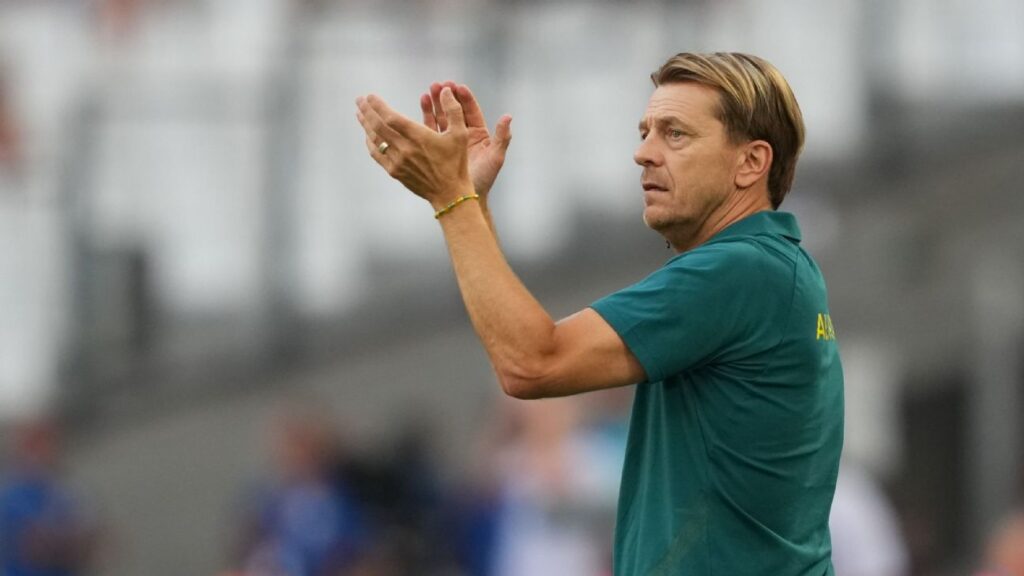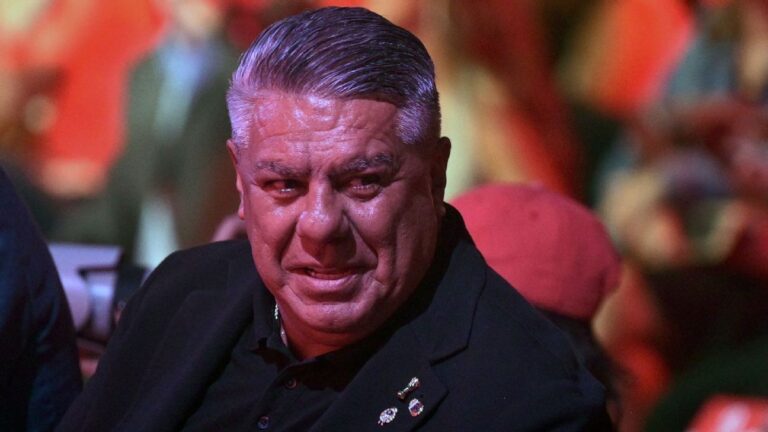Tony Gustavsson’s reign as head coach of the Matildas is over, with Football Australia confirming on Thursday afternoon that it had mutually agreed to part ways with the coach following the conclusion of his contract.
Gustavsson, 50, was appointed to Matildas role in September 2020 on a deal that took him through the Paris Olympics, a campaign that ended on Wednesday after a 2-1 defeat to the United States, combined with Canada’s win over Colombia, eliminated the side in the group stages.
Conceding 10 goals across their three games — ensuring their goal difference would trail Brazil in the race to progress as one of the two best third-placed finishers — it was the Matildas’ earliest exit from an Olympics since 2000 and their first group stage elimination at a major tournament since 2003.
Gustavsson informed the squad of his departure in person on Thursday morning local time in Marseille, before they began the process of dispersing from the Games.
Football Australia will immediately begin the process of recruiting a new coach for the Matildas, with the next international window scheduled for October 21 to 29.
“It has been a great honour and privilege to have been able to be the head coach of the Matildas over the past four years,” said Gustavsson. “This journey with the team has had many incredible moments and memories that I will forever treasure.
“Thank you to the incredible players for letting me play a small part in their stories, my staff for being beside me every step of the way, Football Australia for backing our vision for this team, the Australian football family for embracing me and the Australian public for the tremendous support.
“Australian football will be forever in my heart, and I will be watching on and cheering on your success in the future.”
Placed at the helm of a Golden Generation of talent, the Swede guided Australia to a first Olympics semifinal at the 2021 iteration in Tokyo, falling to the USWNT in the bronze medal game.
He was then in the dugout as the Matildas reached a first World Cup semifinal, with the explosion in goodwill and affection for the side as the tournament was staged Down Under seeing their 3-1 loss to England in that game watched by the largest audience in Australian television history.
These historic results, however, were sandwiched around a 2022 Asian Cup campaign that saw Australia eliminated in the quarterfinals by South Korea — a result that would have forced them to qualify for the World Cup via AFC playoffs had they not already secured a place as hosts — and this week’s poor Paris Olympics.
Off the pitch, Gustavsson also played a significant role in Football Australia’s efforts to close bring up an alarming dearth of depth revealed by its 2021 Performance Gap Report, with 23 players debuting across his tenure — an increase of 15 on the previous cycle — amidst the largest infusion of new talent into the squad in over a decade.
Mary Fowler and Kyra Cooney-Cross both became regular starters amidst his tenure, while the likes of Clare Wheeler and Charlotte Grant became a regular part of squads.
However, this talent infusion sat in concert with the coach increasingly coming in for criticism during his tenure for a lack of rotations in major competitive fixtures, with only 14 members of his squad playing more than 30 minutes across their seven games at the World Cup despite a pre-tournament mantra of it needing “23 for 23.”
“Tony has been an integral part of the Matildas’ journey over the past four years, with a fourth-place finish at the Tokyo Olympics and the FIFA World Cup [in] Australia and New Zealand 2023,” said Football Australia chief executive James Johnson. “We thank him for his strong contribution, passion and commitment during that time and wish him every success for the future.
“While our Olympic Games campaign has ended, we are proud of the commitment of our players and staff. The Matildas have shown spirit and resilience throughout the qualification run and the tournament in France. This group of players have over the past four years made a significant impact on Australian football and we are looking forward to the next four-year cycle of the team.
“As part of our commitment to continuous improvement, we will conduct a thorough review of the campaign as we do with all our national teams following the conclusion of tournaments and each cycle. This review will identify areas for improvement and ensure we are well-prepared for future challenges.”




